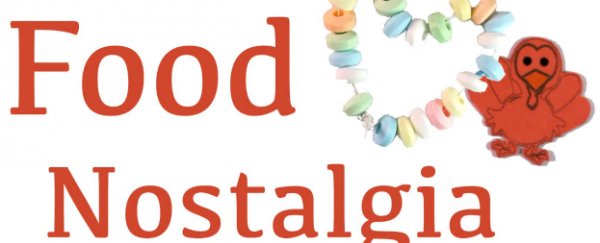
Have you ever experienced food nostalgia? You know the feeling - one second you're biting into a piece of pumpkin pie or turkey smothered in cranberry sauce, and the next thing you know you've been transported back to your childhood Christmasses and Thanksgivings and you're aching for a simpler time.
For me it's BBQ pizza, just like the kind my mum would buy us on the last Friday of each school term, when my sister and I would be allowed to rent a Super Nintendo and a game each and play until as late as we wanted. They were the best nights of my young life, and every time I smell that pizza, it feels like my heart's going to burst.
The latest episode of BrainCraft explains the science behind this powerful phenomenon and proves that it's not all in our heads (or stomachs) - certain smells actually have the power to take us back further into our memories than we usually go, and dredge up feelings long dormant.
This is known as the Proust phenomenon, named after the French author and philsopher Marcel Proust, who wrote about the culinary time-travel he experienced when he tasted a Madeleine cake that had been soaked in tea.
And science has now revealed some of the reasons the experience is so powerful. Interestingly, research shows that the memories triggered by smells are different to those triggered by verbal and visual cues, and actually come from a younger age - usually the first decade of our lives.
Memories linked to certain words and images, on the other hand, are more likely to be from the next two decades of our lives, from when we were 10 to 30.
Researchers have also used fMRI scans to watch what happens when people have a memory triggerd by a smell as opposed to a spoken cue, and found that smells are more likely to stimulate the hippcampus and amygdala in our brains - regions that are crucial in memory and the processing of emotions. They also lead to a greater emotional response.
This is because, as a species, food is so important to our survival that our brains are now actually primed to form memories about food. And we're far more likely to store these memories alongside emotions such as happiness and excitement.
While this can be lovely, the phenomenon is also to blame for some of our complicated relationships with food - studies have shown time and time again that there's far more to eating than just what's in our stomach.
For many of us, it's a pathway to the past. And that's often more important than the rational knowledge that we've probably eaten too much.
Watch the episode of BrainCraft above to find out more about how our memories and emotions rule what we eat, and why candy, in particular, can launch us head-first into the past.
Source: BrainCraft
